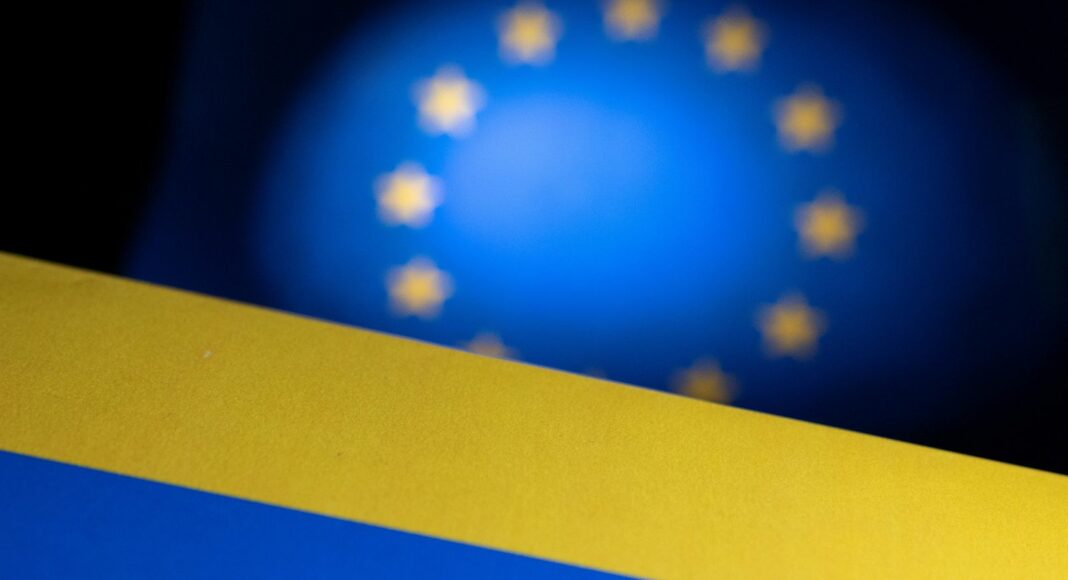On the face of it, the decision to grant “candidate status” to both Ukraine and Moldova was a sign of unity among European nations – a big, supportive hug around beleaguered nations.
But in reality there was dissent behind the scenes about why some countries were being pushed through “at light speed” while others – notably Bosnia-Herzegovina – were being made to carry on their long wait for acceptance.
That led to a series of knock-on effects. For one thing, a lengthy and, at times, fractious debate. European Council President Charles Michel had planned to welcome Ukraine and Moldova to the EU fold in the opening minutes of the session, having hoped that his pre-written announcement would be rubber-stamped. Instead, he had to wait hours.
A series of leaders raised the question of precedent and fairness – was it, after all, fair to fast-track Ukraine when other countries had spent much longer in the queue?
That’s where the name of Bosnia-Herzegovina came up again and again. I understand that a succession of leaders, including those from Austria, Hungary, Croatia and Greece, all said it was hard to justify pushing Ukraine ahead of Bosnia, when the Bosnians have gone to pains to try to satisfy the EU’s requirements.
Foremost among these voices was the Hungarian Prime Minister Viktor Orban. I am told that he questioned whether there was any eence that Ukraine made any more progress in its democratic institutions than countries in the western Balkans.
He told the collected leaders that, while Bosnia was only a small country, it was strategically important and that it could be “lost” to the EU if it was not welcomed soon.
It was a theme that, I’m told, was echoed by the Croatian Prime Minister Andrej Plenkovic, who claimed that the applications of Moldova and Ukraine had been processed “at light speed”. If Bosnia was not given a path to candidate status, he warned, then China, Russia or Turkey would attempt to tighten their links to the nation.
Read more:Ukraine and Moldova accepted as candidates to join European Union
And what of all the nations who have already got candidate status? You can exclude Turkey, which has been a candidate since the end of the last century and, realistically, has no chance of being accepted as a full member any time soon.
What about western Balkan nations?
But what about the western Balkan nations – North Macedonia, Serbia, Albania and Montenegro? All have spent many years trying to satisfy the EU’s entry rules – but they now worry that they may have been thrown behind Ukraine in the membership queue.
Of course, the process of actually earning full membership does take a long time. It’s nearly a decade since Croatia became the last country to join the bloc, and nobody feels that near at the moment. But that long application process is, itself, creating problems.
‘Accession fatigue’
French President Emmanuel Macron spoke of “accession fatigue”, raising the idea that candidates could get restless and disenchanted. On the flip side, I understand that the German Chancellor Olaf Scholz, talked of how the EU would have to reform its rules were it to welcome an influx of new members.
Why? Well some crucial decisions require unanimous approval. That’s hard enough to achieve now, but would become even more challenging if the number of member states rose from 27 to somewhere in the 30s.
Follow the Daily podcast on Apple Podcasts, Google Podcasts, Spotify, Spreaker
Ultimately, though, there was agreement – that Ukraine and Moldova should become official candidates, and that Georgia’s application should be reviewed again shortly.
The EU did what it was always going to do – back Ukraine. But while it may look symbolic, the impact of this does run deeper. Make no mistake – the question of how, why and when the EU should expand is a volatile debate that will continue to rumble.




